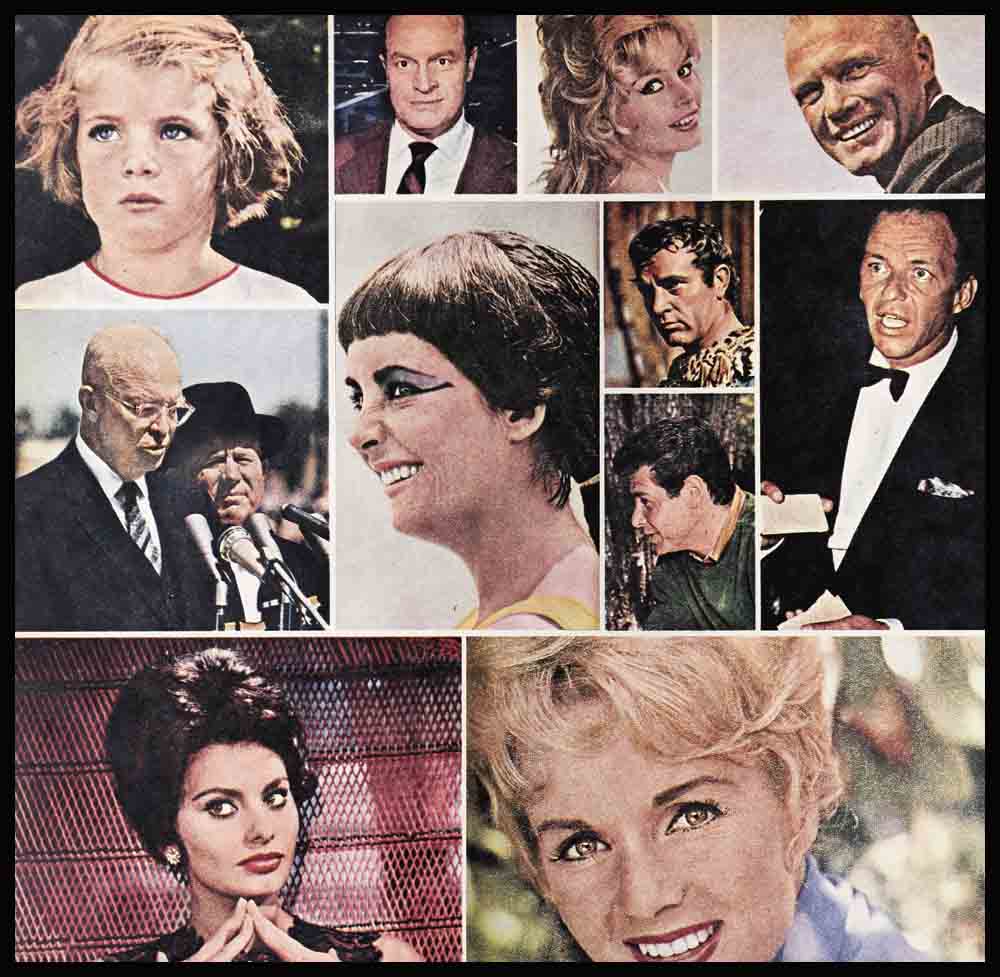
The Joke’s On Them!
Here are four gags, wisecracks and quips which have made people laugh in recent times:
At a surprise party celebrating Bob Hope’s fifty-ninth birthday, Lucille Ball recalled his younger days—“He was handsome then—big chest, hard stomach. Of course all that is behind him now.”
From a column: “The secret of Liz Taylor’s success can be summed up in one word: Yes!”
Senator Ted Kennedy tells about three boys who were at poolside when the President took a swim. JFK got a cramp and the boys dived in and rescued him. So the President asked what they wanted as reward. The first youth asked for an appointment to West Point, the second wanted an appointment to Annapolis, but, in Ted’s words, the third moaned, “My only request is for burial in Arlington National Cemetery. Because when my old man hears who I saved, I’ll be dead.” (Gwen Gibson)
Juliet Prowse tells about the mother of a spoiled, five-year-old Hollywood child star who almost drowned in the ocean. Approaching his rescuer soon after she asked, “Are you the one who saved my boy’s life?” When the lifeguard nodded, she asked, “So what happened to his hat?” (Douglas Watt)
Okay. Let’s say that, like most of the people in the United States who heard these gags, you laughed at one or more of them. Why? What made you laugh? What is laughter?
Psychiatrists and psychotherapists from Sigmund Freud to F. S. Perls have explained laughter as a “response to a nonthreatening attack.” Hi-falutin’, huh? But it simply means that we laugh at something which might be unpleasant or dangerous when we are sure it’s not really going to hurt us. Its underlying “attack”—which could be uncomfortable or downright embarrassing to us if it were stated directly—is made safe for us by the notation that “it’s all in fun.” It’s not to be taken seriously. Laugh it off!
You’re still not clear about why you laugh and what laughter is? all right. Let’s say you have certain feelings and impulses that are important to you. but which you don’t dare bring out in the open because they’re not socially acceptable. Telling or listening to or reading jokes allows you to express your “taboo” feelings without embarrassment or anxiety. Sex and hostility are the two basic impulses usually let out into the open through jokes. for society is most concerned with controlling and suppressing our sexual and hostile feelings. A good gag, then, allows us to express these “taboo” impulses in a safe and socially accepted way.
Suppose we consider hostility for a minute. We all have angry feelings we have difficulty handling. We all want to be “nice” and “popular.” We’d like to “belong,” to have everyone like us, and we’re we’re afraid that if we tell people off they won’t like us any more and that would be terrible. At the same time we become rest- less and tense if we always hold in our true feelings (part of our anger is at having to suppress them), and find great relief in letting our anger sneak out in the form of humor—jokes, wisecracks and gags.
Through humor we “attack” the very celebrities we love to create—in movies, TV, sports and pop music; and now we even extend this “attack” to the astronauts and to the President and his family. Sure, we like to have famous people to look up to; but we don’t want them too far above us. So simultaneously we are proud of our celebrities, and we cut them down to size—our size. We like to identify with the rich and famous. but at the same time, by means of our quips and gags, we say, “He’s just like me, he’s no better than I am.”
Therefore, our jokes and wisecracks show (even though we’re not always aware of it) that we simultaneously admire, envy and morally condemn a beautiful star’s adventures with men, just as we simultaneously are proud of our leaders for being leaders yet warn them that we don’t want them to be too big, too strong, too different from us.
Okay. Now let’s look at some more gags and try to find out what they reveal about our celebrities—and about ourselves.
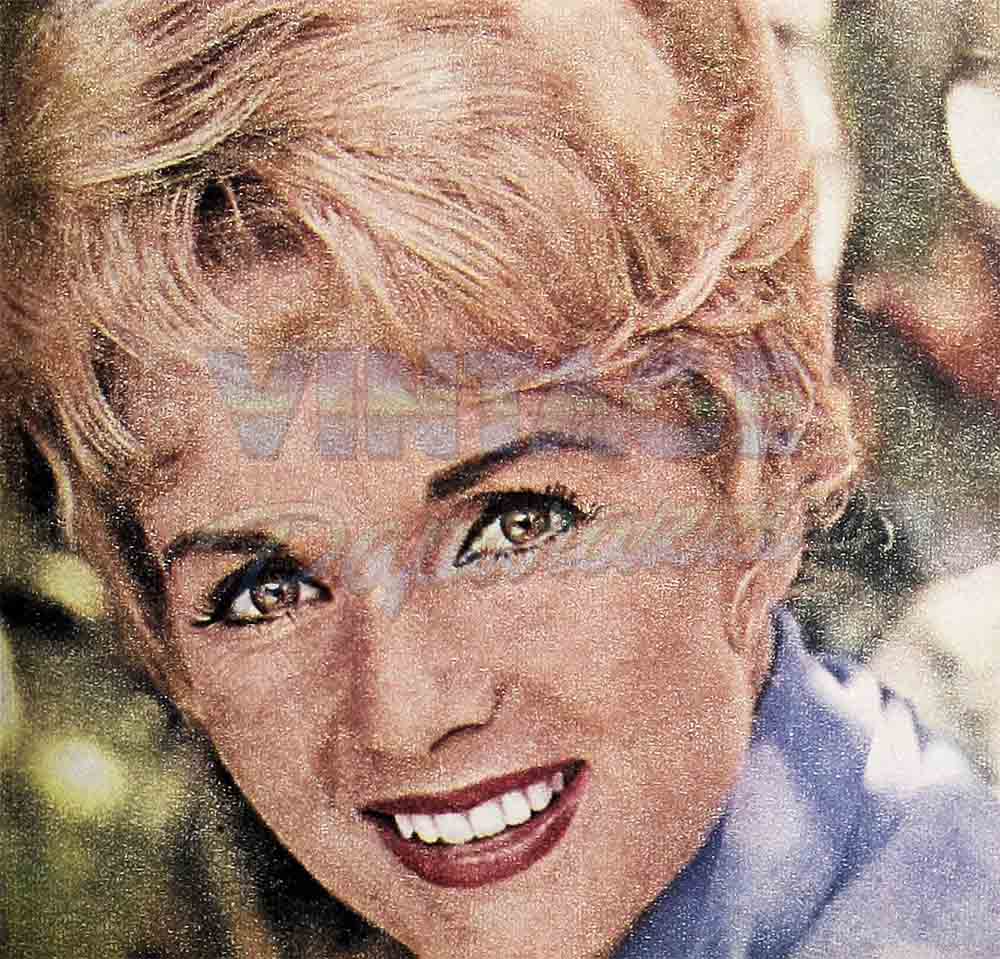
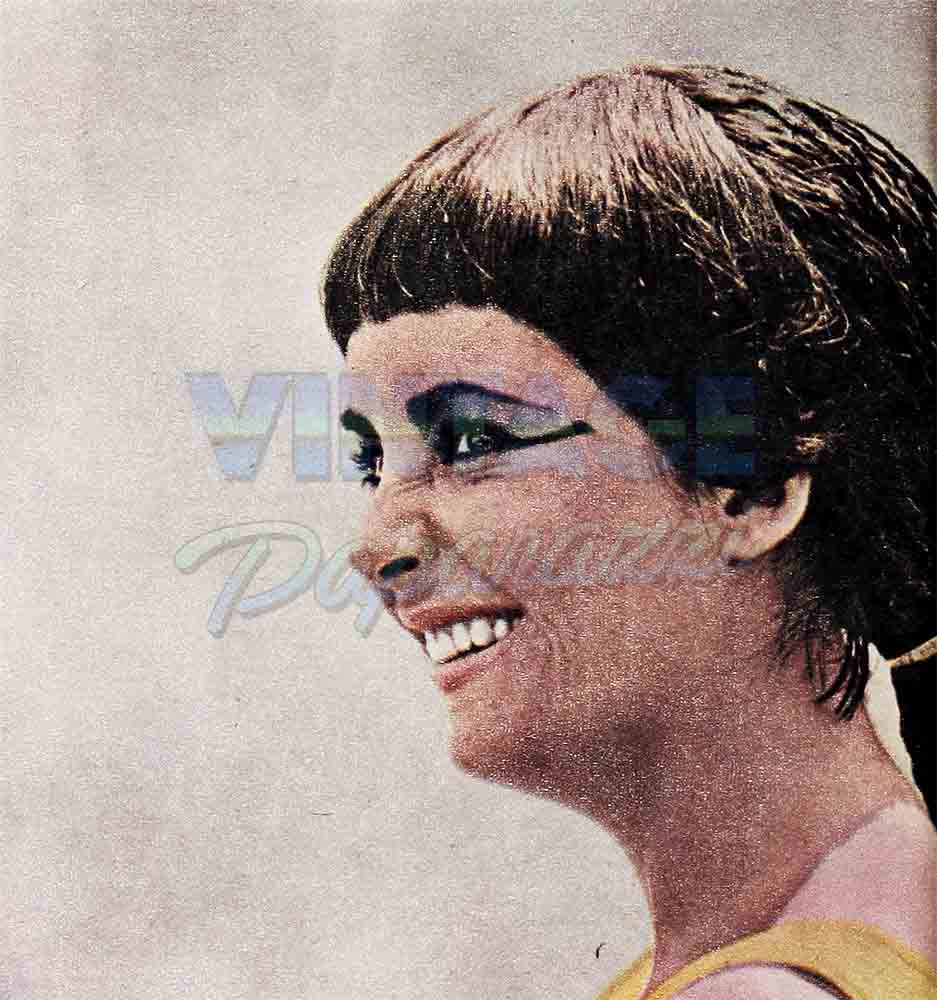
Outside of Liz, Burton and Eddie, who are in a class by themselves, the favorite targets for wisecracks are the Kennedy family—individually, in pairs and in clumps. The intent of these gags ranges from unconcealed hostility (an attempt to destroy them through direct, brutal humor—“This gag will kill you”) to sly humor (an attempt, as we’ve pointed out already, to “cut down to our size” celebrities whom we like and admire):
The rocking chair is the perfect Symbol of the New Frontier—it gives the semblance of motion without actually getting anywhere. (Mort Sahl)
Our President is so young. His mother said to him. “Jack. do you want to go to summer camp or run for President?” (Bob Hope)
When JFK and Jackie celebrated their wedding anniversary, they wanted to keep it small so they kept out the immediate family and just invited the public. (Jack Denton)
There was a rumor Castro was going to assassinate all the Kennedys. Castro denied it. Where would he get all that ammunition? (Mort Sahl)
The Kennedy Administration has got a program for everybody but a guy looking for a broad. (Joe E. Lewis)
Wall-streeters, still smarting from the stock market crash and the President’s handling of the Steel crisis, insist that JFK’s father. Joe Kennedy, keeps shaking his head and saying, “I knew I never should’ve voted for that . . . !”
I hear President Kennedy plans to split Massachusetts in half—High Mass and Low Mass. (Bob Hope)
Imagine Caroline getting all that publicity and not being able to read. (Jackie Kannon)
The Repubs expect to win with Caroline in ’64 if Jackie doesn’t run. (Walter Winchell)
Reporters asked Judy Garland and Sid Luft (when they were still together) after they’d visited the White House, “Did you meet the nation’s First Lady this time?” Sid answered. “No—Caroline was away.”
After the 1961 Cuban fiasco: Caroline is a nice kid, all right. but this is the last time I let her plan an invasion. (Dave Astor)
We’ve speculated that “our wisecracks show that we simultaneously admire, envy and morally condemn a beautiful star’s adventures with men.” This is certainly borne out by the nature and quantity of the wisecracks made about Liz, Dick and Eddie:
She’s been on more laps than a napkin. (Walter Winchell)
Said about a starlet: She thinks she’s an actress because she has an Egyptian haircut and only goes out with married men. (Lee Mortimer)
I don’t know if she really plans to file for divorce, but one more divorce and she can start a file. (Cholly Knickerbocker)
If you think you have expenses, how would you like to buy Father’s Day gifts for Liz Taylor’s kids? (Lee Mortimer)
Eddie knew something was the matter when Liz brought the asp home from work. (Bob Hope)
A committee was formed to help Eddie Fisher, the unluckiest man in the world. They arranged for him to win a drawing from a hat. Eddie was given ticket No. 4, and every paper in the hat was numbered 4 to make sure he would win. So he put his hand inside the hat to draw the winning number—and pulled out 6 1/2 (Henny Youngman)
Eddie must have been getting his in- formation from the CIA. (Dick Gregory)
Everyone knows of Debbie Reynolds’ dedication to the Thalians. One of her friends who works with her for that charity called a Hollywood paper and said, “I want to place an ad for Debbie Reynolds.” The ad clerk quipped: “What does she want to say in the ad? ‘I told you so’?”
You think 20th Century-Fox has troubles? Wait’ll they find out Liz Taylor’s a boy. (Walter Winchell)
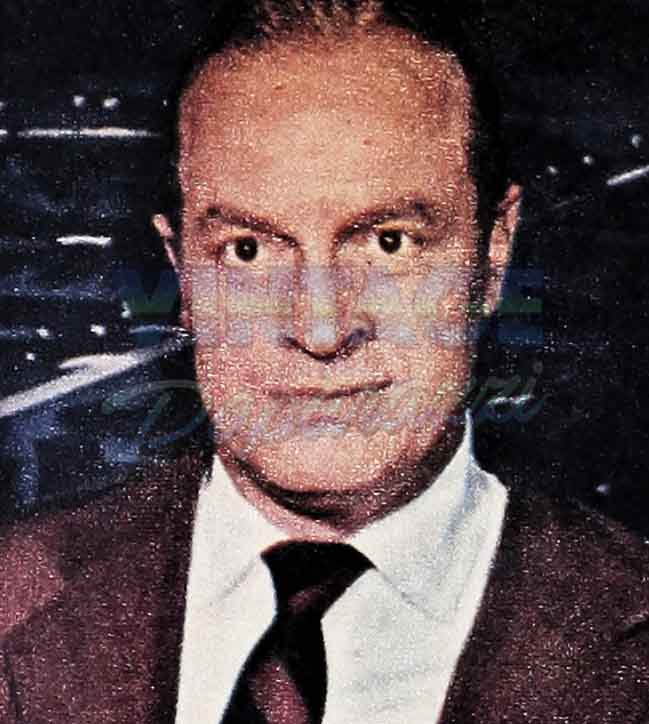
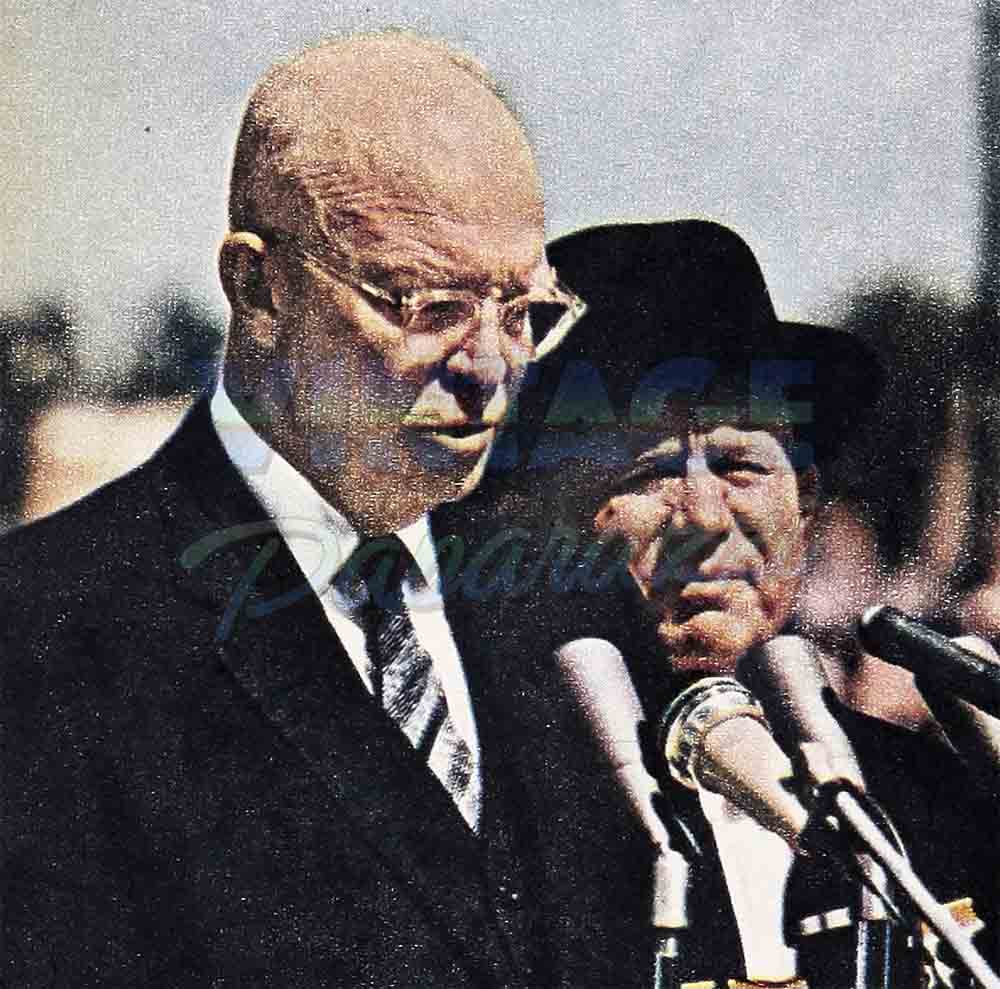
When we apply our statement, “We like to have famous people to look up to, but on the other hand we don’t want them too far above us” to the astronauts, we’re making a kind of feeble joke ourselves. We do “look up” to the astronauts and “we don’t want them too far above us,” and through our jokes and wisecracks we do try to bring them “down to earth.” Like this:
I understand three doctors were waiting for Glenn when he came out of the capsule. It must be great not to sit in the waiting room. (Bob Hope)
One advertiser’s answer to the astronauts: Next time take the bus and leave the driving to us.
We found out what happens when a capsule takes a man. (Bob Hope)
Asked if the U.S. will use women astronauts, a space official replied: “Well, the male astronauts are all for it.”
Commenting on the speed of Glenn’s flight: Imagine going 17,500 miles an hour—and he’s not even a teen-ager. (Bob Hope)
Today’s kids are spoiled by too many gifts. My kid, for instance. I paid $150 for a space suit for him—and then he wouldn’t go. (Alan Drake)
Carpenter flew over Las Vegas three times. It was the only place nobody looked up. (Bob Hope)
A boy told his mother he’s going to be a spaceman in 1964 and go to the moon. When she broke into tears, her son reassured her by saying: “Don’t worry. I’ll wear a sweater.” (Bruce Benton)
When an interviewer asked super- astronaut Jose Jiminez what he planned to do during the long, lonely, solitary hours in space, Jose replied: “Well, I plan to cry a lot.”
Another inviting target for gags, jokes, quips and wisecracks is the TV medical drama. As soon as Ben Casey and Dr. Kildare became America’s favorite physicians, they also became the favorite foils for comedians, both amateur and professional:
Milton Berle told a TV audience that he had “a rough time getting back on television” until he lied to the network officials “and told them I was a doctor.” Nowadays one can’t watch TV without a prescription.
Last night I watched “Dr. Kildare;” this morning I got a bill from him for a house call.
My kid won’t let me turn on “Ben Casey” until I scrub my hands in hot water. (Bernie Allen)
Singer Neil Sedaka says he’s been offered a TV lead in what they’ll call “an outdoor medical show.” He’ll play a tree surgeon.
Al Cooper’s wife is so busy watching TV medical shows he can only come home during visiting hours. (Robert Sylvester)
Medical TV shows are doing so well that other programs are converting and changing their names; for example: “Surf Side Sick” . . . “Wagon Pain” . . . “Hawaiian Eye, Ear, Nose and Throat.”
Often a rash of wisecracks breaks out after a celebrity has been involved in a news event—either a real event or one dreamed up by an imaginative press agent. Such an event (real or imagined, take your choice) happened to Jayne Mansfield when she was “marooned” on an island. The gags that followed in the wake of Jayne’s “near tragedy” were, to say the least, ungentle:
Note we received in the mail: “A tube of insect repellent has been sent to Jayne Mansfield in your name.”
Yesterday’s Hollywood consensus on Jayne: Did anybody really think she wouldn’t float? (Robert Sylvester)
Jayne’s okay. But the sharks will never be the same.
Anybody who says Jayne Mansfield has a nose for news, probably flunked anatomy. (Red Kane)
Frank Sinatra also exposed himself to a bombardment of gags when he split up with Juliet Prowse:
An Ohio newspaper asked local residents what they thought was the most significant event in the week’s news, forgetting to specify which news, and one man replied: “It would never have happened if Frank hadn’t insisted on her quitting work.”
Joe E. Lewis made a more general comment about Frank and his habits when he said: “You know Frank Sinatra did my life story in the movie (‘The Joker Is Wild’). The script called for him to stand at a bar and refuse a drink. A stunt man finally had to do it.”


Actually, there are no stars who are immune from the barbs of the public’s humor. Hollywood itself—its manners, morals, pretensions, awards—always invite the attack of gagsters and their ilk.
A teenager approached Sue Lyon, who plays Lolita, asked the young star for her autograph, then apologized: “It’s not for me—it’s for my uncle.” (Leonard Lyons)
You could take all the sincerity in Hollywood and conceal it in a flea’s navel and still have enough room for six caraway seeds and an agent’s heart. (Fred Allen)
At least those Academy Awards were honest. How could anything so dull be phony? (Walter Winchell)
Those Academy Awards are definitely fixed. You’ll notice the Best Actress Award is always won by a woman. (Groucho Marx)
Definition of an adult Western: First the hero plugs the villain. Then he plugs his new record. Then he plugs a couple of Indians. Then he plugs his new movie. (Al Hirt)
In Hollywood, the eternal triangle consists of an actor, his wife and himself. (Leo Roston)
Alan King tells the story about the perplexed Hollywood star who consulted a psychiatrist about his son. “Doctor.” he began, “I have an unusual problem with my boy. He’s thirteen years old— and he’s just started shaving.” “Well, I admit that’s a little young,” said the doctor. “But it doesn’t seem like much to worry about.” Said the father, “But Doc, he’s shaving his legs!”
A famous actress leaves the set after a day’s shooting and bumps into a new studio cleaning woman, who drops her mop and bucket and throws out her arms with wild joy. The actress and the cleaning woman embrace and the surprised onlookers hear a loud, happy cry of “Mother!” Then, after tears and kisses, the actress says goodbye and makes her way out of the studio gates to the Street where her limousine and a crowd of autograph seekers are waiting for her. The cleaning woman watches her go and turns to another cleaning woman and says, “Didn’t I always tell you my mother was a beautiful woman?” (Joe McCarthy)
An eighty-seven-year-old great-grandmother, a former Hollywood actress, went to her lawyer to discuss a divorce. “How long have you been married to your husband?” the counsellor asked. “Sixty-five years,” the old lady said. “After sixty-five years of living with this one man, why do you want to divorce him?” “Because,” great-grandmother said, “enough is enough.” (Kaye Ballard)
Sir Cedric Hardwicke saw a “See the Homes of the Stars for Only $1” sign in a Hollywood bus station and commented: “That’s awfully cheap for a trip to Switzerland.”
Hollywood bedtime story: “once upon a time there were three bears—Mama Bear, Papa Bear and Baby Bear by a previous marriage.” (Johnny Carson)
TV programs, TV violence and TV as a social force in American life have received their share of humorous commentary:
A nine-year-old watched the Picasso show on TV the other night. Finally he turned to his father and said, “He’s too old to being doing first grade work.” (Al Salerno)
In the face of public and official demands that the TV networks play down violence in their programs, one station compromised by giving one of its jungle shows a religious twist. In one scene, a missionary ran into a lion in the middle of the jungle. Escape was out of the question, so the missionary sank to his knees and prayed. To his astonishment, the lion did the same. “How miraculous,” exclaimed the missionary, “to join me in prayer when just a moment ago I gave myself up for lost!” “Quiet,” ordered the lion, “I’m saying grace.” (Bennet Cerf)
Red Buttons claims that when he was making the film “Hatari” in Africa, he came across a cannibal wife who was cooking a television repair man. “Oh, no,” groaned the cannibal husband. “Not another TV dinner!”
Marlon Brando’s reaction to an offer to star in a TV special: “TV is a wonderful medium to work on—if you happen to be a horse!” (Hy Gardner)
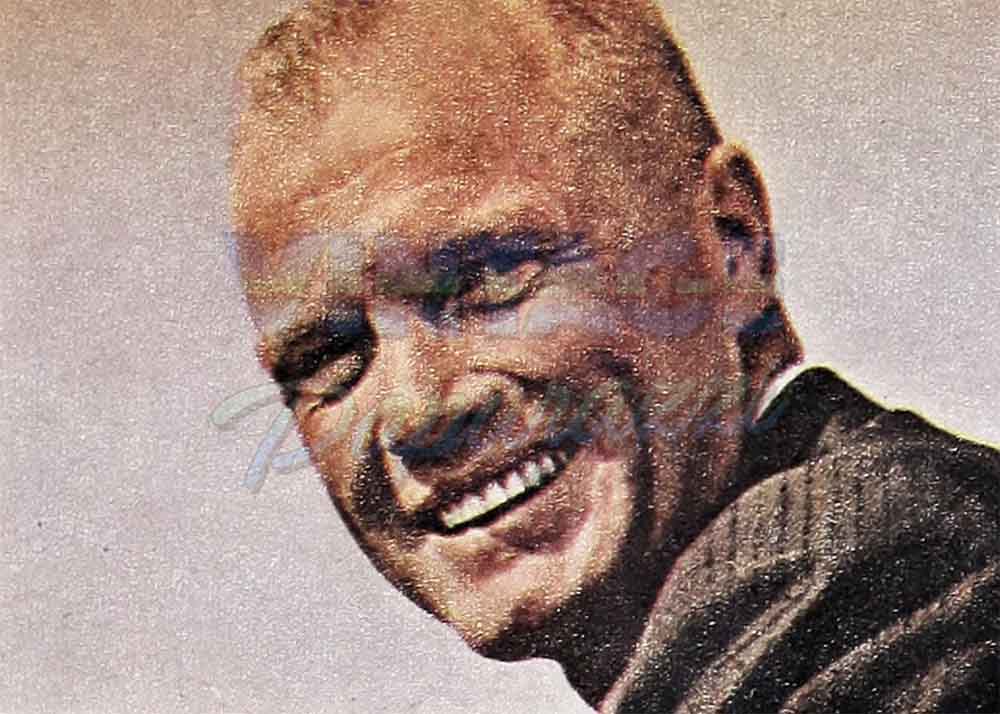
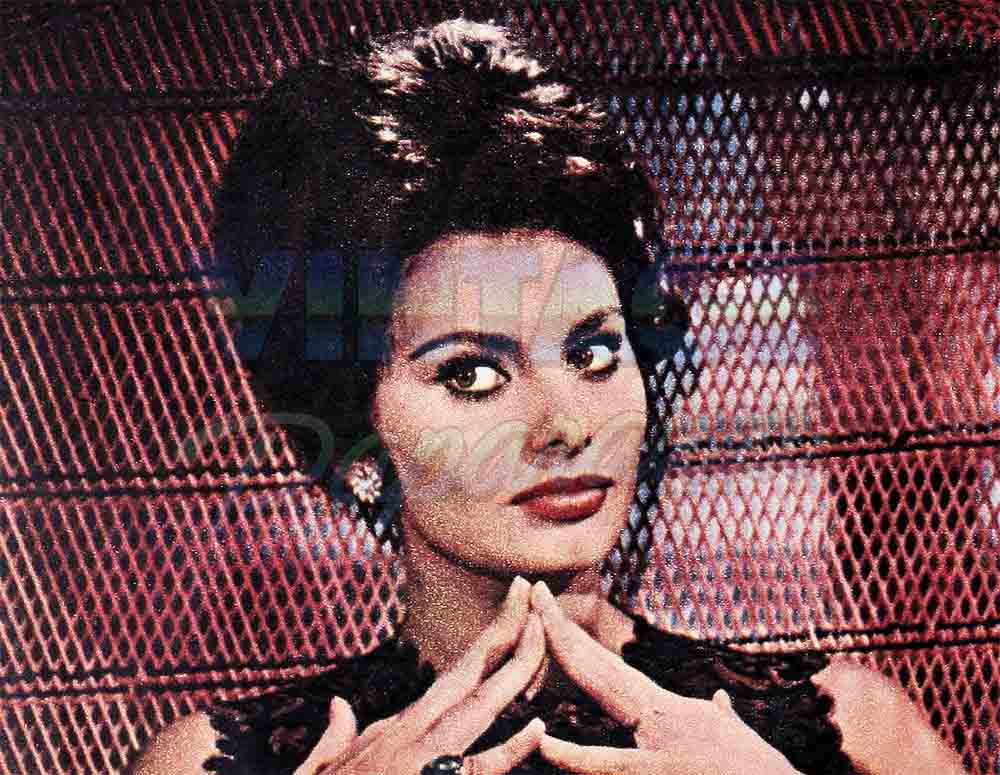
There is no area of the entertainment field that is safe from the intrusion of humor:
Jack E. Leonard tells about one circus performer who twice a day dived from a forty-foot platform into a tank of broken glass: “And this stunt didn’t seem to bother him at all—except that when he drank water, he dripped from all pores.” Jon Hendricks cracks wise about one of America’s unique forms of music: Jazz came up the river from New Orleans. It had to—they wouldn’t let the musicians on a bus.
And a DJ complains about sexy covers on record albums. He was bitterly disappointed after buying an album with a nude woman on the jacket: “When I played the record. I discovered I’d bought the complete campaign speeches of Richard Nixon.”
This leads us to another type of celebrity whom the public loves to see deflated. We’ve already looked at some of the gags directed at the Kennedys; now, in the spirit of impartiality, let’s examine some aimed at Republicans:
Everybody talks about President Eisenhower, but who has ever seen him. Have you? Have you? He doesn’t exist. He’s stuffed. (Lenny Bruce)
Ike was supposed to be here tonight, but the Defense Department wouldn’t clear his speech. (Bob Hope)
Some people were so sure Nixon would get elected, in Whittier they started building the log cabin he was born in. (Bob Hope)
Hard to label politically, but sitting ducks for humorous blasts, are Russia’s Premier Khrushchev and America’s would-be saviour, Robert Welch.
Khrushchev didn’t understand Benny Goodman’s music. Strictly a Red Square. (Robert Sylvester)
When asked his opinions on the John Birch Society, Jim Backus replied: “I’m delighted to see that civic-minded people have gotten together to save our trees!”
Atty. Gen. Robert F. Kennedy, poking fun at the John Birch Society, declared that despite their charges of wholesale Communist infiltration of government, the Birchites have been able to find only one “genuine Communist agent.” Kennedy added: “That’s Dwight D. Eisenhower.”
One of the most common comic devices of the wise-crackers is to lump celebrities together in one gag, and thereby kill two or more stars with one crack. Sometimes, politician is linked to politician, as in the following bit of authentic Americana:
I don’t approve of wealthy men like Kennedy and Rockefeller attaining public office. As we all know, it’s traditional to attain public office and then become wealthy. (Mort Sahl)
The President is one place, his wife is in another, Bobby’s off speaking somewhere, and who knows where Caroline is. Remember the good old days when you knew where the President was?—out on the golf course. (Bob Hope)
You can’t tell about Presidents. They were saying before the election how Kennedy was too young for Eisenhower’s job. So now Eisenhower’s out playing thirty-six holes of golf every day and Kennedy sits home in a rocking chair. (Gleason)

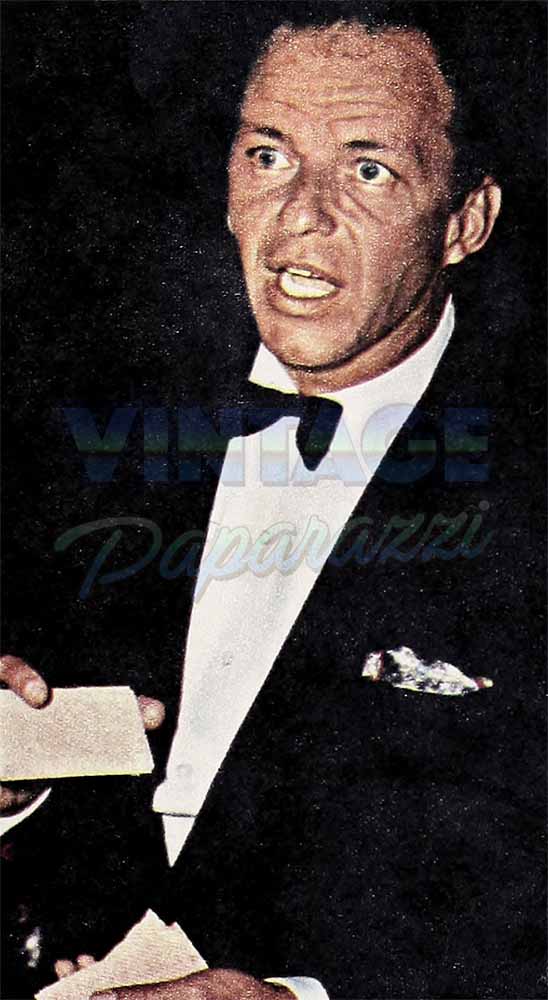
Sometimes politician is linked to entertainment personality, as in the following:
Definition of a dilemma: When Petah a, Lawford is summoned by both his brother-in-law and Frank Sinatra—at the same time. (J. Dever)
The Hollywood gossip that President Kennedy has chilled in his friendship for Sinatra recalls Bob Hope’s crack: Sinatra made him and he can break him.
Jackie Kennedy didn’t stay in Rome too long. Liz Taylor wanted the photographers back.
Sometimes, entertainment star is linked to entertainment star, as in the following:
“The real truth is that I am in love with Burton and Miss Taylor is the cover-up for us.” (Joseph L. Mankiewicz)
During a discussion of “Cleopatra” and the goings-on in Italy: What a relief it is to pick up a front page and not have to read about the Congo, Laos or Vietnam. (Abe Burrows)
I never approved of Sammy’s marriage to Mai Britt—she’s too tall for him!
A man went to a psychiatrist because of this recurring dream: “I keep dreaming I’m stranded on an island with Gina Lollobrigida, Sophia Loren and Brigitte Bardot.” The doctor asked: “What’s bad about that? It should be fun.” “But in the dream.” the fellow sighed, “I’m always Liz Taylor.”
America is really the land of opportunity. Take Crosby and Sinatra. Where else would a meatball and a piece of spaghetti wind up with all that gravy? (Al Schwartz)
If Liberace married Hildegarde and adopted Fabian, it’d be wonderful. They’d have a full name. (Jackie Gayle)
And sometimes the linking is indeed bizarre:
Glenn is the bravest Marine since John Wayne. (Bob Hope)
A carpenter working on “King of Kings” hit his thumb with a hammer and swore, “Jeffrey Hunter!”
A familiar form of humor is when a celebrity or star pokes fun at himself. The public’s reaction is usually: “Hey, what a nice guy. He can laugh at his own weaknesses.” But as psychiatrists point out, he probably does so because he fears that others are going to attack him if he doesn’t do it first. He beats his critics to the punch.
Dean Martin tells about the time he went to a country fair with a pal. After drinking more glasses of applejack than they could count they started for home, forgetting that in one field on their way a vicious bull was loose. Sure enough, the bull snorted and charged. Dean, unafraid, grabbed its horns and twisted them until the bull bellowed for help and fled. “Too bad I took those last drinks,” sighed Martin to his friend, “or I sure would have pulled that fresh palooka off his bicycle.”
Joe E. Lewis says: “The difference between drunks and alcoholics is that drunks don’t have to attend those damned meetings.” (Walter Winchell)
Seeing his old movies on TV, Bob Hope wails: “I get the feeling that Eve got a son I’ve never met.”
Frank Sinatra’s plea after his brief engagement to Juliet Prowse: “Can anybody use a hot diamond?”
Jerry Lewis explains what compels him to keep up the frantic pace: “I’m such a ham that when I open the refrigerator and the light goes on, I sing four numbers.” (Al Salerno)
Eddie Fisher comments on “Cleopatra”: “They shot that picture so long they could have used the original cast—and I wish they had.” (Earl Wilson)


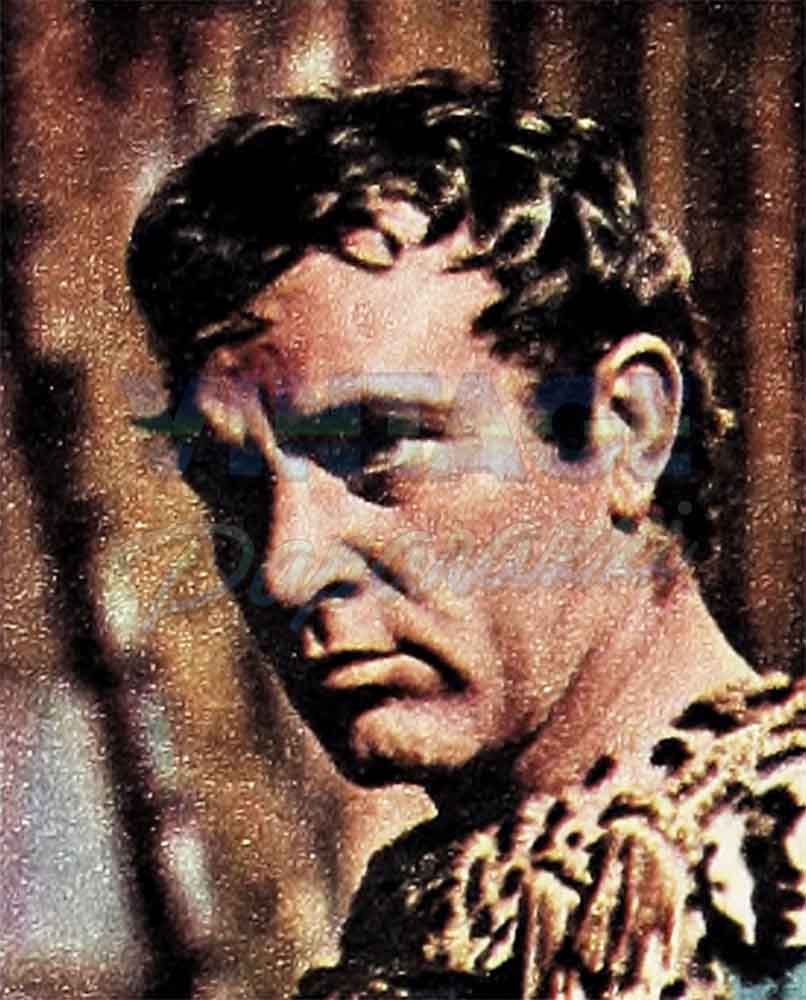
Look who’s joking!
A master of poking fun at himself and those near and dear to him is President Kennedy, who once advised his brother Bobby to practice the same technique so that people would warm up to him. The President’s most famous instance of self- mockery occurred at a Paris luncheon for the press when he started off: “I do not think it altogether inappropriate to introduce myself to this audience. I am the man who accompanied Jacqueline Kennedy to Paris.” But there are others, too, as following examples will demonstrate:
When President Kennedy accidentally dropped the medal he was about to present to spaceman Alan Shepard, he picked it up and remarked that it “came from the ground up.”
At the White House dinner for forty-nine Nobel Prize winners, Mr. Kennedy described the event as “the President’s Easter egghead roll.” On this occasion, too, Mrs. Kennedy got into the act by saying to Pacifist Dr. Linus C. Pauling, who had left a ban-the-bomb picket line outside the White House to come in to join the guests, “Do you think it’s right to picket out there where Caroline can see you? Then she comes to me and asks: ‘What’s Daddy done wrong now?’ ” (Leonard Lyons)
When it comes to warding off attacks with a joke or answering critics with a jibe, President Kennedy is in the great Presidential tradition. It was Abraham Lincoln, a master at the jocular retort, who first devastated his enemies in this way. once, during the Lincoln-Douglas debates, when Douglas called Lincoln a two-faced man, Abe replied: “I leave it to the audience. If I had another face, do you think Ed wear this one?” On another public occasion when his personal appearance was ridiculed, Lincoln parried the thrust by telling about running into a man who, on first seeing him, poked a gun in his face and cried out, “I swore if I ever met an uglier man than myself, I would shoot him dead.” Lincoln snapped back, “Shoot me, sir, because if I am uglier than you, I do not want to go on living.”
President Kennedy certainly has not had to meet any attacks against his personal appearance, but he has countered other criticisms with flashing wit:
When, in 1958, rumors were making the rounds that Kennedy’s father was pouring money into his son’s pocket so that Jack might “buy” the Presidency, Senator Kennedy, speaking at a Gridiron Dinner in Washington, took out a “telegram” that he claimed had been sent to him from the Riviera by his father. He said, “I have just received the following wire from my generous daddy. It says, ‘Dear Jack, don’t buy a single vote more than is necessary. I’ll be damned if I’m going to pay for a landslide.’ ”
To the charge that he was planning to intervene directly in the Massachusetts Democratic senatorial primary, which his brother Ted won against House Speaker John McCormack’s nephew Ed, JFK quipped: “We’re not sending in any troops, just a few training missions. We’re confining ourselves to the slogan, ‘We’d rather be Ted than Ed.’ ”
During the period when Big Business was blasting the President for his firm stand in the Steel crisis, JFK was a guest at the White House press dinner. He complimented performers Benny Goodman, Sally Ann Howes, Elliot Reid. Peter Sellers and Gwen Verdon by saying, “I have arranged for them to appear next week on the U.S. Steel Hour.” He paused for a second and then added, “Actually I didn’t do it—Bobby did it.”
Family fun
Occasionally, the President turns his wit against members of his own family:
Once, after talking with the President’s daughter, Jack’s father. Joe Kennedy, said to his son. “Caroline’s very bright, smarter than you were at that age.” “Yes, she is,” said the President, “but look who she has for a father.”
At President Kennedy’s forty-fifth birthday celebration at Madison Square Garden, Jack Benny said to the Chief Executive, “The amazing thing to me is how a man in a rocking chair can have such a young wife.” Said Kennedy to Benny, who is sixty-eight going on thirty-nine, “I’m very glad you could come to a birthday party for an older man.”
Of course. the President has no monopoly on the funny retort and the laugh- provoking rebuke:
When Bob Hope asked Frank Sinatra, “Why did President Kennedy stay at Bing Crosby’s house instead of yours?” the singer grinned and answered, “Because Bing has a rocking chair.” (Nick Kenny)
When Jackie Gleason was a patient in a hospital. Frank Sinatra visited him and the lat comic said, “Name it. and Eli produce it—food. booze, broads.” “A girl in a hospital?” Frank asked sceptically. “Of course,” Gleason replied, “although she may have a little fever.”
Katherine Hepburn, regarded as a master of the barbed remark, was topped by John Barrymore. After they finished “Bill of Divorcement,” she turned to Barrymore and snarled, “Thank God I don’t have to act with you any more.” Cooed Barrymore, “Darling, I didn’t know you ever had.”
A little boy visited the set of “Have Gun, Will Travel,” inspected the gun on Richard Boone’s hip and asked, “How about firing it a couple times for me?” Paladin said, “I can’t.” “What’s the matter?” sneered the boy. “No water?”
After Jack Carter met Col. John Glenn, he phoned his aunt and said, “I met Col. Glenn!” “Who?” she asked. “You know, the astronaut,” Carter said. “What’s that?” she asked. “The astronaut,” said Carter. “He went around the world three times.” “Well,” she replied, “when you got money, you can travel.”
It was the acid-witted artist James McNeil Whistler who uttered one of the greatest squelches of all times. A triple-chinned dowager, having her portrait painted, asked Whistler, “Does it look like me?” The artist answered, “Hours ago. Madame—I’m now improving it.”
But more effective than any contrived humor, perhaps, is the unaware, said-by-mistake, didn’t-know-it-was-funny-at-the-time kind of combination of statements that becomes hilarious in the light of subsequent events. Let’s call our particular combination of statements “The Roman Scandals of 1962.” It’s as good as any:
Liz Taylor: “At home, my husband takes over as King Tut.”
Richard Burton: “I don’t know what the fuss is all about.”
Sybil Burton: “Liz Taylor? I adore her. She’s an old friend.”
Susan Wilding (about to fly off to England to divorce Liz’ ex-husband, Mike Wilding) : “But of course. I adore Liz, like Sybil does.”
Richard Burton (commenting on the Easter weekend he spent on the Italian coast with Liz): “I went there alone to read Aldous Huxley and maybe learn ‘Hamlet’ in Italian.”
And, to close our picture, two head- lines exactly as they appeared in the papers: Asp Bites Liz—Worst Is Now Over and Exultant Studio in Rome Watches Cleopatra “Die!”
Finally. no examination of gags would be complete without a brief consideration of the late Marilyn Monroe’s special brand of humor. It was as if Marilyn, who felt threatened by everything and everyone, could only hit back at the world (and only handle her own deep frustrations) by poking gentle fun at others—and at herself.
When some busy-body prescribed exercise for Marilyn’s health because exercise kills germs, the actress retorted sweetly, “But bow do you get germs to exercise?”
When a reporter was silly enough to ask Marilyn what she had on when she posed in the nude for a calendar, she replied, “The radio.”
But it was when she was frightened—and she was frightened very often—that Marilyn’s ability to laugh at herself was the only thing that stood between her and complete collapse. One such frightening occasion was the night she showed up at Madison Square Garden in 1955 to lead the opening parade of the circus. Marilyn had only agreed to come in the first place because this opening night performance was for charity, and so she forced herself to be brave.
When Marilyn arrived at the Garden basement and saw the pink elephant she was to ride, she was petrified. But when the fanfare blared, Marilyn, true to the tradition “the show must go on,” climbed gingerly aboard. A brave smile was plastered on Marilyn’s face as the elephant lumbered slowly around the ring.
The ride was supposed to take five minutes, but photographers kept shouting, “One more, Marilyn,” until twenty-five minutes passed. When she finally dismounted, she was shaking like a leaf in a storm. She took a step and grimaced with pain.
Then, as someone rushed forward to support her. Marilyn grinned and said, “Now I know how women cellists must feel after an evening’s performance wish the symphony.”
—JIM HOFFMAN
It is a quote. PHOTOPLAY MAGAZINE MARCH 1963





No Comments